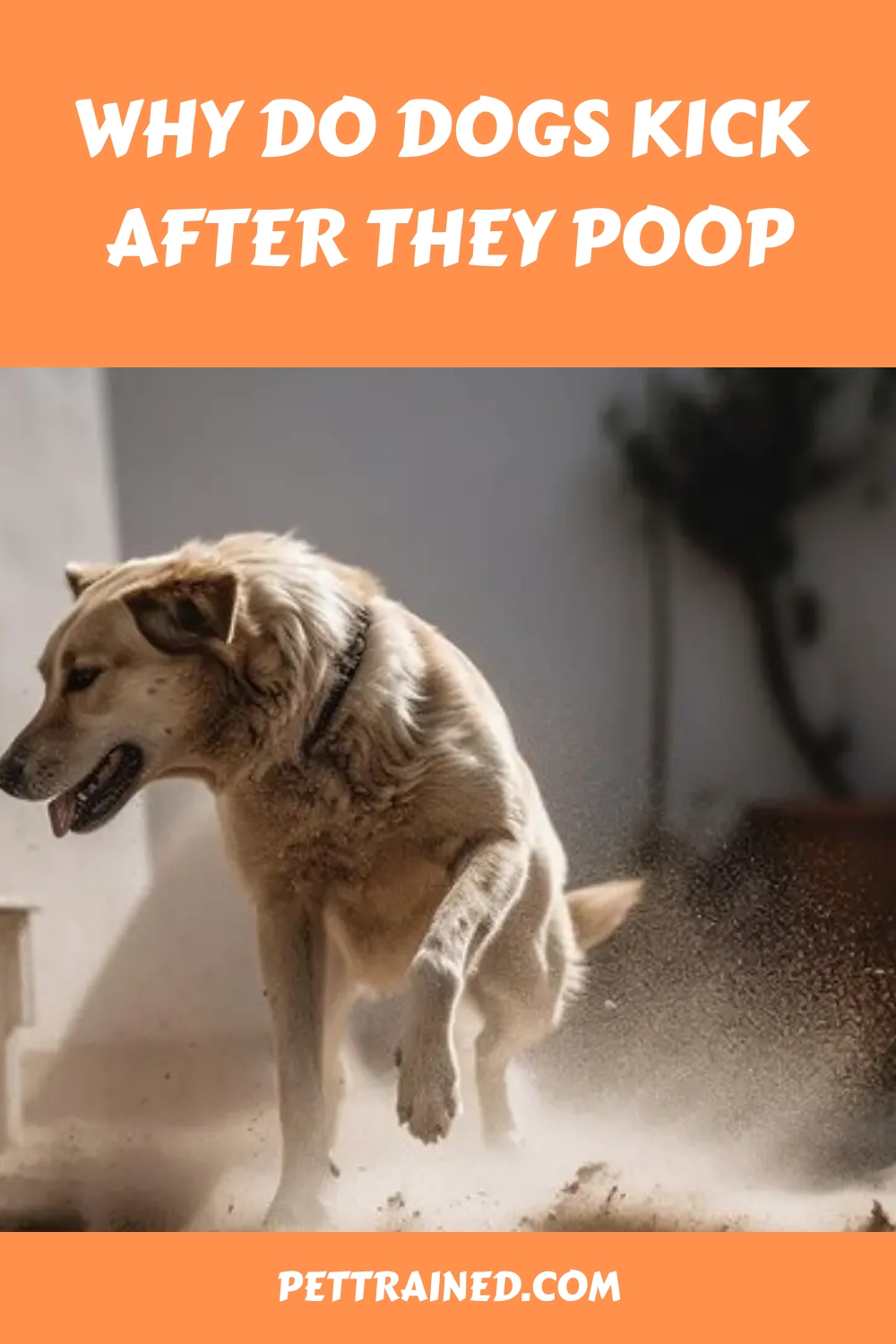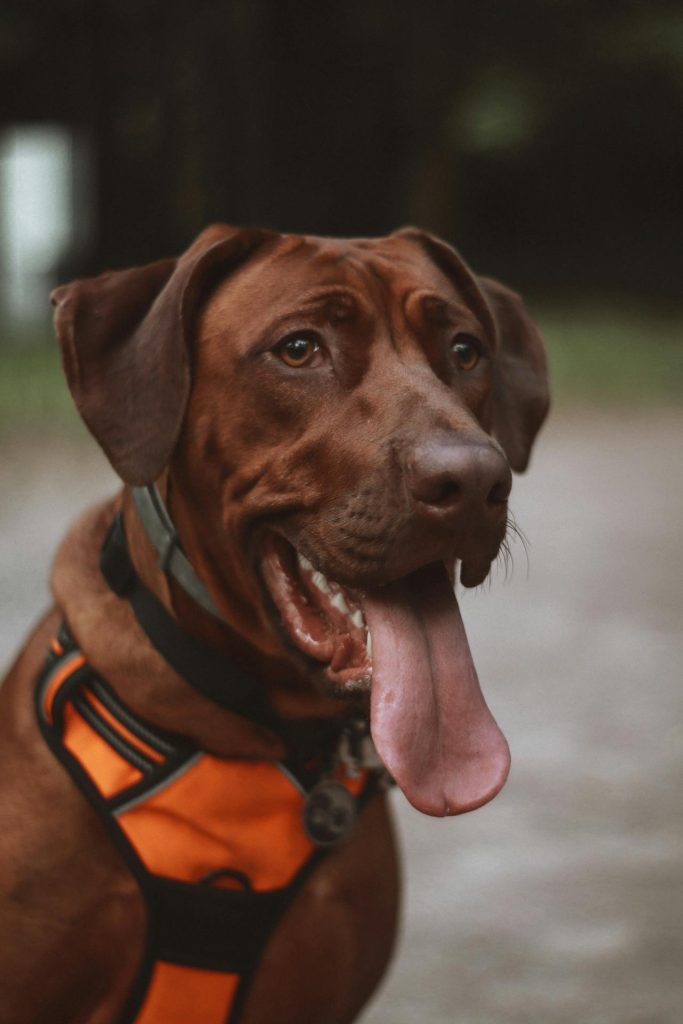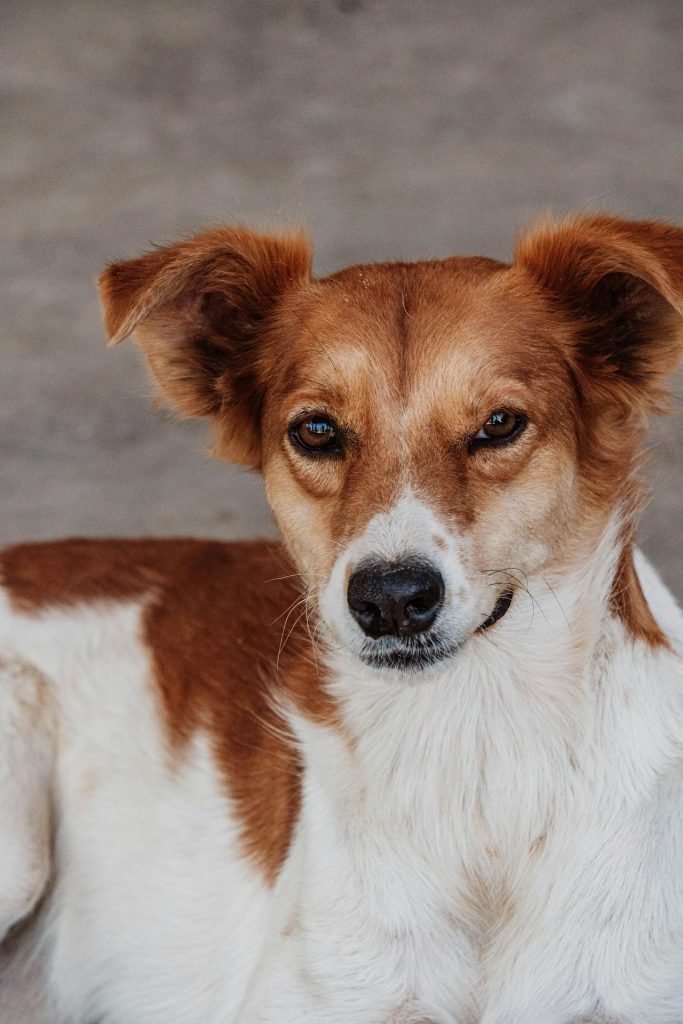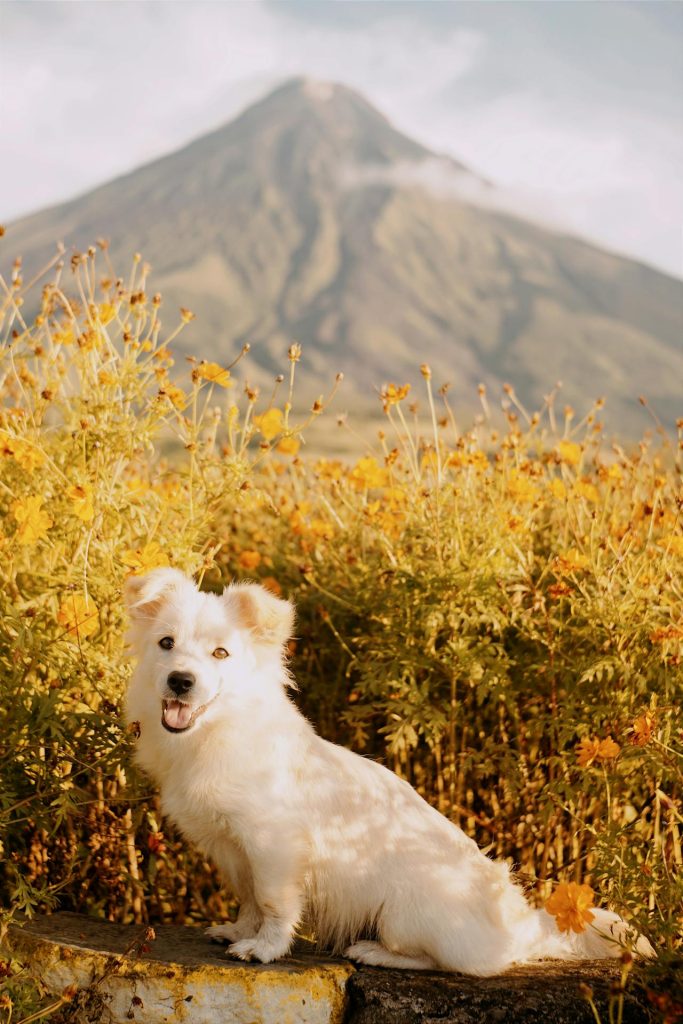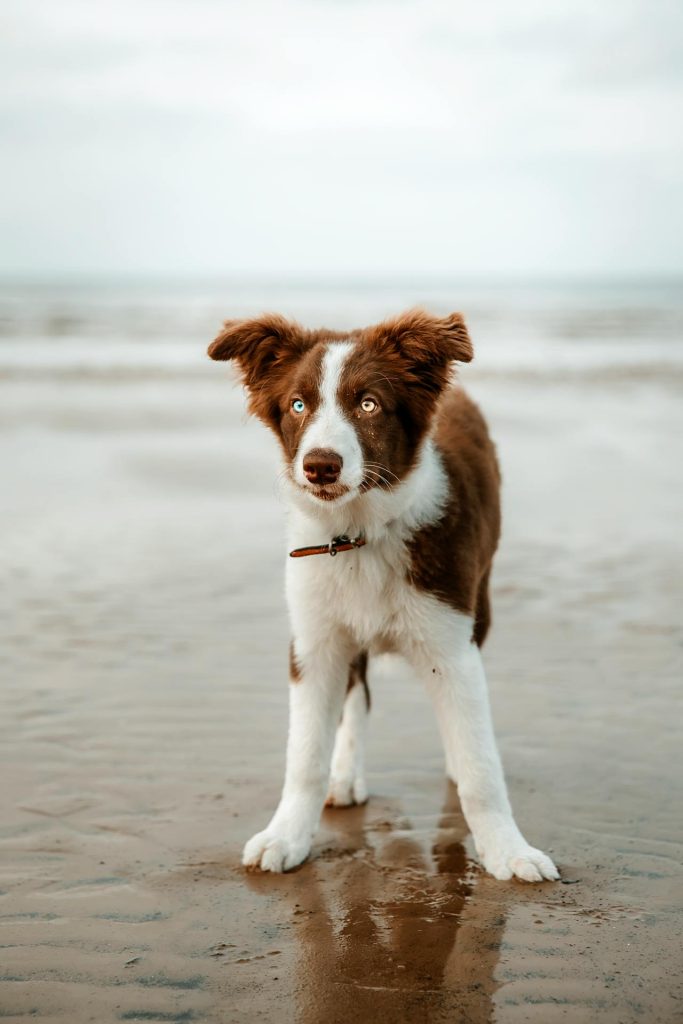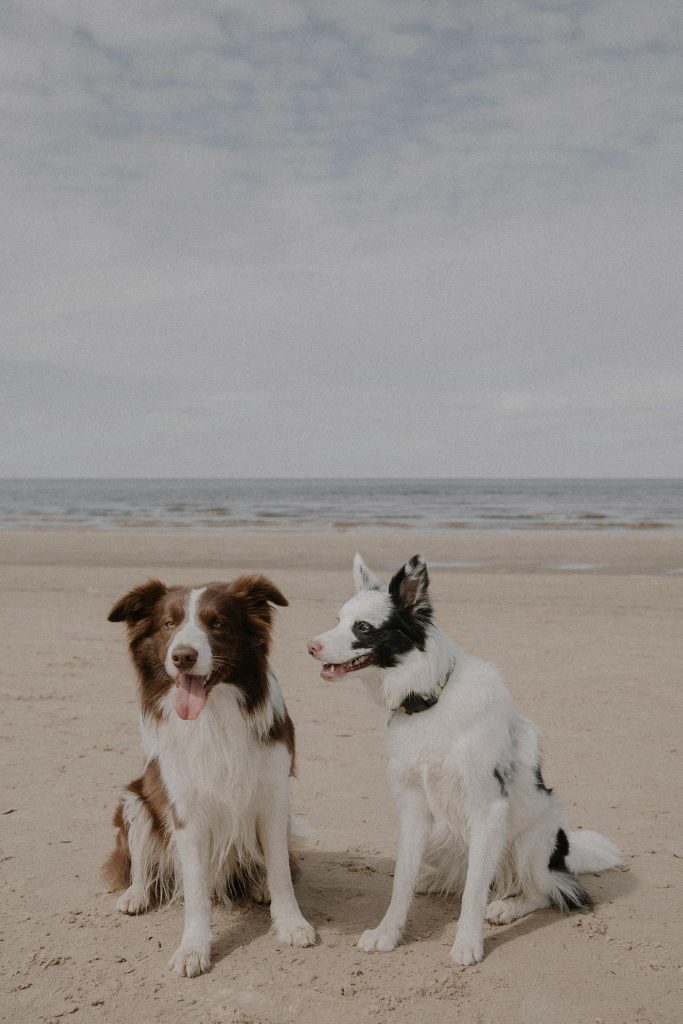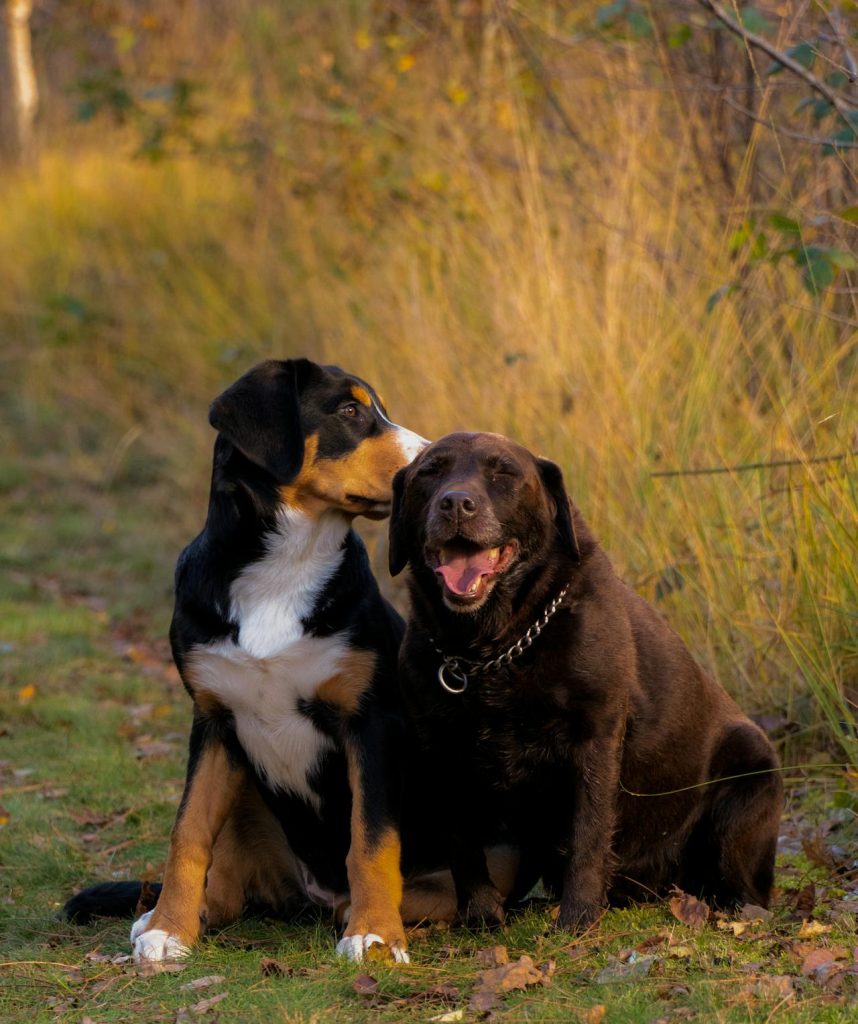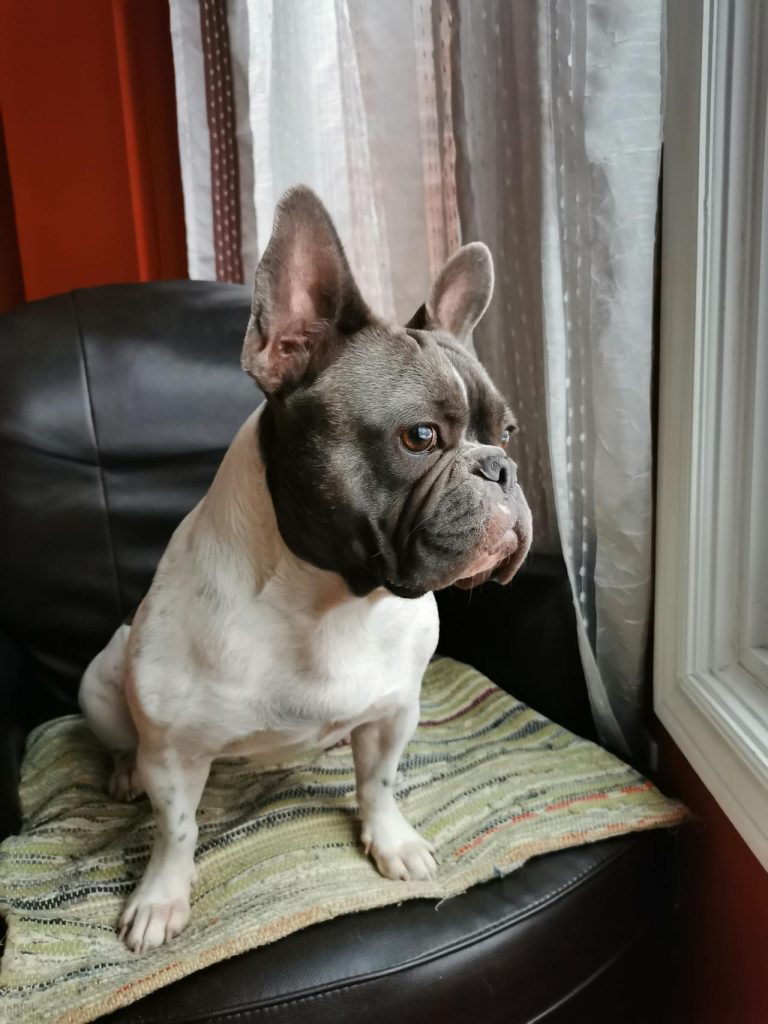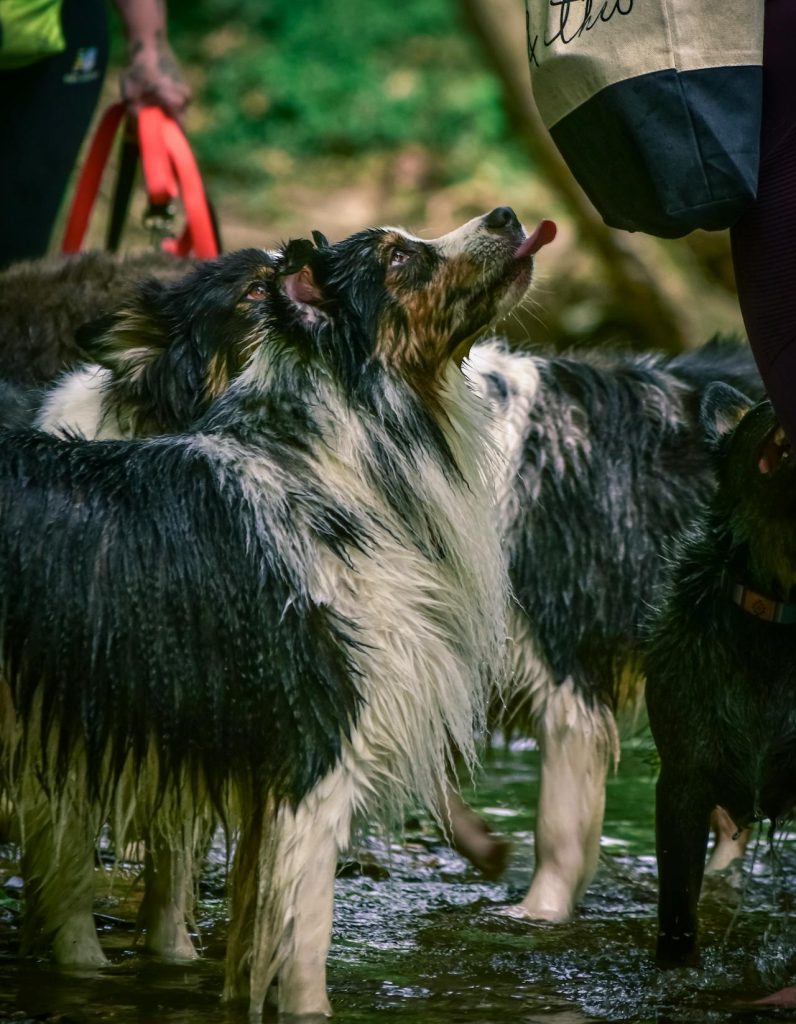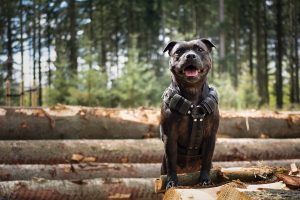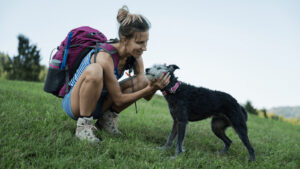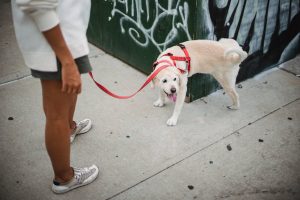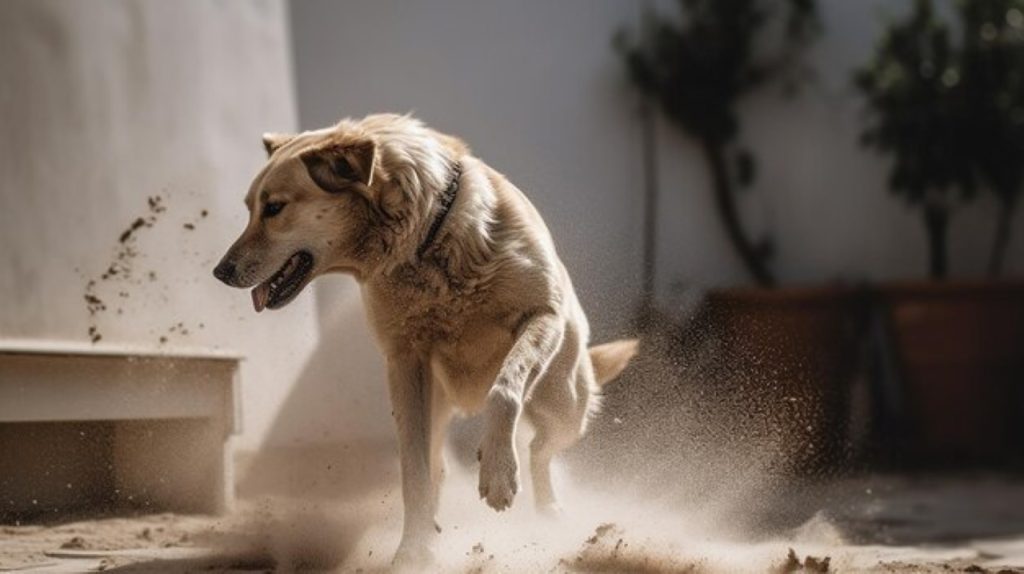
When your dog kicks the ground after pooping, you’re witnessing an inherited behavior rooted in ancestral instincts. This complex action serves multiple purposes, including marking territory and establishing dominance. By dispersing pheromones from scent glands, your dog is signaling its position within the canine social hierarchy and warning others to stay away. Kicking also alleviates physical discomfort and irritation, such as impacted anal glands or digestive issues. As you explore this behavior further, you’ll discover how social learning, emotional expression, and environmental influences shape your dog’s kicking habits, revealing a rich tapestry of canine communication and behavior.
Table of Contents
Key Takeaways
- Dogs kick after pooping due to an inherited instinct from wild ancestors to cover stool and conceal scent from predators and competitors.
- Kicking serves as a form of nonverbal communication with other dogs, warning them to stay away and establishing territorial boundaries.
- Dogs also kick to mark territory using pheromones from scent glands, signaling position within the dominance hierarchy.
- Kicking can be an anxiety release mechanism and a way to express emotional state, such as assertiveness and protection.
- Physical discomfort, including impacted anal glands, skin irritation, or digestive issues, can also trigger kicking behavior in dogs.
Ancestral Instincts at Play
Some behaviors exhibited by domesticated dogs may seem puzzling at first, but they often have roots in the instincts of their wild ancestors. You may have noticed that your dog kicks the ground after pooping, and you’re not alone in wondering why they do this.
It’s important to understand that this behavior is influenced by their genetic predisposition, which is shaped by their evolutionary history.
In the wild, canines used to kick the ground to create a shallow hole for their stool, making it easier for them to cover it up with dirt and vegetation. This behavior helped them conceal their scent from predators, competitors, and prey.
Although domesticated dogs no longer need to hide their stool, they still exhibit this evolutionary behavior due to their inherited traits. When your dog kicks the ground after pooping, they’re likely expressing an innate behavior that’s been passed down through generations.
This post contains affiliate links. However all the information provided on this site are my own honest opinions. See more in Disclaimer.
Recognizing the ancestral roots of this behavior can help you better understand your dog’s instincts and actions. By doing so, you can provide them with a more informed and empathetic care.
Marking Territory and Dominance
Kicking after pooping serves another purpose in the canine world: marking territory and establishing dominance.
You see, when your dog kicks the ground after defecating, they deposit pheromones from their scent glands located in their paws. This action helps them mark their territory, warning other dogs to stay away.
It’s a manifestation of their territorial instinct, a primal urge to claim ownership and define their boundaries.
As your dog kicks, they’re also exhibiting dominance behavior. In the canine hierarchy, dominant individuals often display specific postures and actions to assert their status.
Kicking after pooping is one such behavior, signaling to other dogs that they’re the alpha in the area.
This behavior is particularly common in multi-dog households or in areas with high canine traffic. By kicking after pooping, your dog is communicating their dominance and reinforcing their position in the pack.
Emotional Expression and Relief
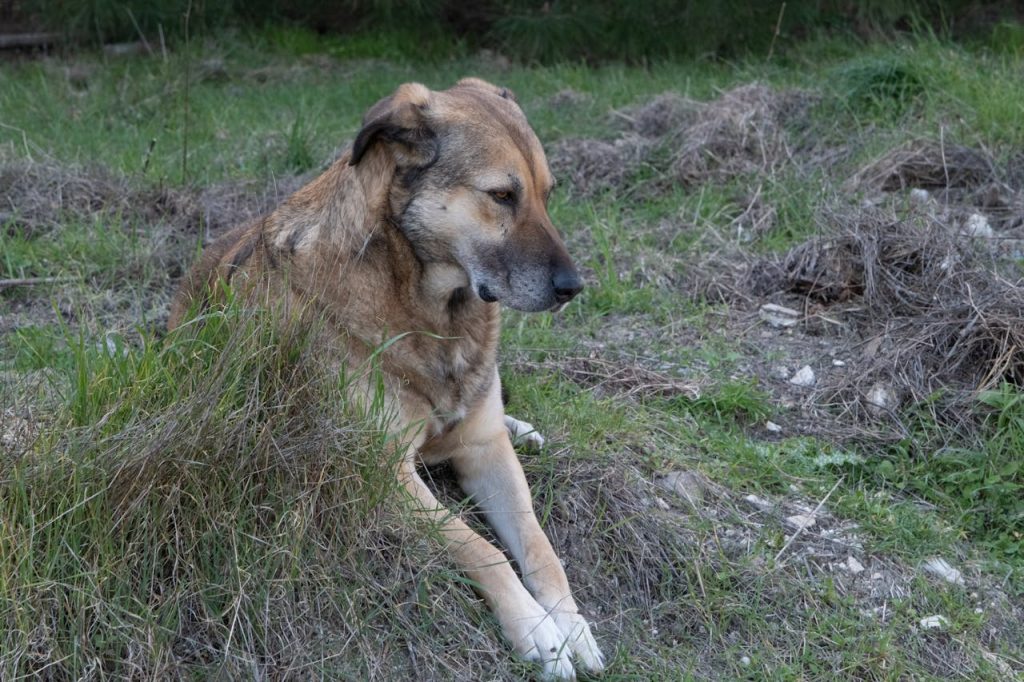
You may have noticed that your dog kicks the ground after pooping, and researchers believe this behavior is linked to instinctual patterns.
It’s possible that this action serves as an anxiety release mechanism, allowing your dog to express pent-up emotions in a natural way.
Instinctual Behavior Explained
When it comes to understanding dogs kicking after pooping, delving into their emotional expression and relief provides valuable insight.
You’ll discover that this behavior is closely tied to their instinctual nature, shaped by evolutionary traits that have been passed down through generations.
In the wild, canines use body language to communicate with their pack, and kicking after pooping is a subtle yet significant signal.
As you explore this behavior further, you’ll find that it’s linked to social bonding and territory dynamics. Dogs are establishing a sense of ownership and familiarity with their environment, which is essential for their emotional well-being.
Environmental influences, such as the presence of other animals or changes in their surroundings, can also impact this behavior.
By understanding canine instincts and pack mentality, you’ll gain a deeper appreciation for the complexity of dog behavior.
In this situation, kicking after pooping is more than just a quirk – it’s a critical expression of their emotional state and a reflection of their primal roots.
Anxiety Release Mechanism
The act of kicking after pooping serves as an anxiety release mechanism, allowing dogs to express and relieve pent-up emotions.
You see, when your dog kicks the ground after defecating, it’s not just a random movement – it’s a significant emotional release.
This behavior helps your dog manage anxiety and stress that may have built up throughout the day. By kicking, your dog is able to release tension and pent-up energy, leading to a sense of relief and calmness.
In terms of anxiety management, kicking after pooping is an essential behavior for dogs. It allows them to express their emotions in a healthy way, rather than bottling them up and potentially leading to destructive behavior.
This stress relief mechanism is important for maintaining your dog’s emotional well-being and preventing anxiety-related issues.
By recognizing the importance of this behavior, you can better understand your dog’s emotional needs and provide them with a healthier, happier life.
Communicating Emotions Freely
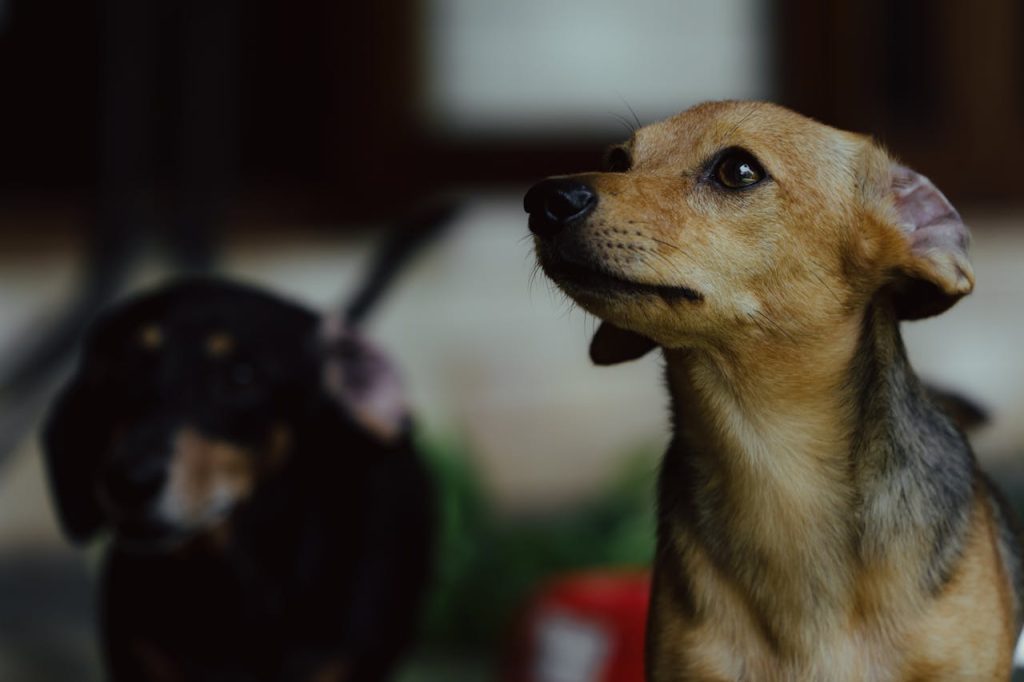
Beyond anxiety release, kicking after pooping also serves as a means for dogs to communicate their emotions freely. When you observe your dog kicking after defecation, you’re witnessing a manifestation of their emotional intelligence.
Dogs use body language to convey emotions, and kicking is a form of expression that indicates relief, comfort, or even excitement.
| Canine Behavior | Emotional Intelligence |
|---|---|
| Kicking after pooping | Indicates relief and comfort |
| Spinning or twirling | Signifies excitement or playfulness |
| Panting or yawning | Suggests stress or anxiety |
Physical Discomfort or Irritation
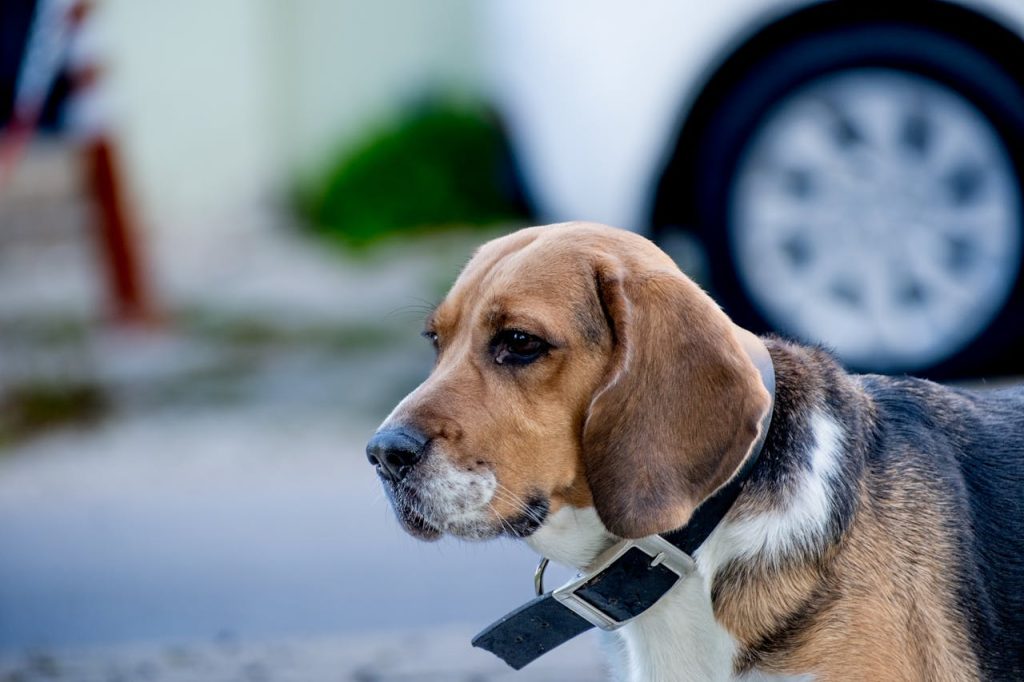
Kicking after pooping may be your dog’s way of alleviating physical discomfort or irritation in their anal glands or rectum.
Your dog’s anal glands, located on either side of the anus, can become impacted or infected, causing pelvic discomfort and pain.
When your dog kicks after pooping, it may be trying to relieve this discomfort by expelling any remaining stool or debris that could be irritating the anal glands.
Skin irritation in the anal region can also cause your dog to kick after pooping. If your dog has digestive issues, such as diarrhea or constipation, it may lead to irritation and discomfort in the anal region.
Your dog may be attempting to soothe the irritation by kicking its hind legs.
Trending in Dogs:
Additionally, some dogs may develop behavioral habits, such as kicking after pooping, in response to repeated episodes of digestive issues or anal gland irritation.
By recognizing these potential underlying causes, you can take steps to address your dog’s physical discomfort and alleviate the kicking behavior.
Regular veterinary check-ups and maintaining a healthy diet can help prevent anal gland issues and digestive problems.
Communicating With Other Dogs
When you observe your dog kicking after pooping, you may be witnessing a form of nonverbal communication with other dogs.
By kicking up dirt and debris, your dog is likely scent marking their territory, warning other dogs to stay away from their designated area.
This behavior may also be a way for your dog to signal their position within the dominance hierarchy, asserting their status to other canines in the vicinity.
Scent Marking Their Territory
One primary theory behind a dog’s behavior of kicking after pooping is that it’s an instinctual act of scent marking their territory.
When you observe your dog kicking the ground after defecating, you’re witnessing a natural behavior that’s fundamental for scent communication.
By kicking the dirt, your dog is dispersing their scent and creating a clear boundary of their territory.
This behavior is deeply ingrained in canines, as establishing territory boundaries is essential for their social hierarchy and spatial awareness.
As your dog kicks the ground, they’re depositing pheromones, chemical signals that convey information about their identity, sex, and reproductive status.
These pheromones help other dogs recognize your dog’s territory and understand the social dynamics at play.
By scent marking their territory, your dog is effectively communicating with other dogs, signaling their presence and warning them to respect their boundaries.
This instinctual behavior is a crucial aspect of canine communication, and it plays a significant role in maintaining social order among dogs.
Warning Other Dogs Away
Your dog’s instinctual kicking behavior after pooping serves as a warning to other dogs to respect their personal space.
This action is a form of territorial behavior, signaling to other dogs that this area is occupied and protected. By kicking their hind legs, your dog is communicating their boundaries and deterring potential intruders.
| Behavior | Social Signaling | Result |
|---|---|---|
| Kicking after pooping | “This area is mine, stay away” | Other dogs are deterred from approaching |
| Elevated posture | “I’m assertive and protective” | Other dogs perceive dominance |
| Direct stare | “I’m watching you, respect me” | Other dogs submit or retreat |
| Tail language | “I’m open/aggressive/fearful” | Other dogs respond accordingly |
Your dog’s kicking behavior is an essential aspect of social signaling, conveying important information about their status, intentions, and emotions.
This instinctual behavior guarantees that other dogs in the area understand and respect their personal space, maintaining a harmonious and balanced canine social dynamic.
By recognizing this behavior, you can better understand your dog’s interactions with other dogs and appreciate their unique communication methods.
Signaling Dominance Hierarchy
Following the act of kicking after pooping, your dog’s behavior also plays a significant role in signaling dominance hierarchy within the canine social structure.
By kicking dirt or debris, your dog is, in effect, broadcasting a message to other dogs in the area about its dominance status. This behavior is a form of communication that reinforces its position within the social hierarchy.
As you observe your dog kicking after pooping, you’re witnessing a dominance display that serves to maintain order and stability within the pack.
By signaling its dominance, your dog is warning other dogs to respect its boundaries and avoid confrontations.
This behavior is especially important in multi-dog households, where establishing a clear hierarchy is essential for maintaining harmony.
In the canine world, social hierarchy is established through a combination of dominance displays, submission, and cooperation.
By kicking after pooping, your dog is actively participating in this complex social dynamic, reinforcing its dominance status, and communicating with other dogs in the area.
Leaving a Scent Trail
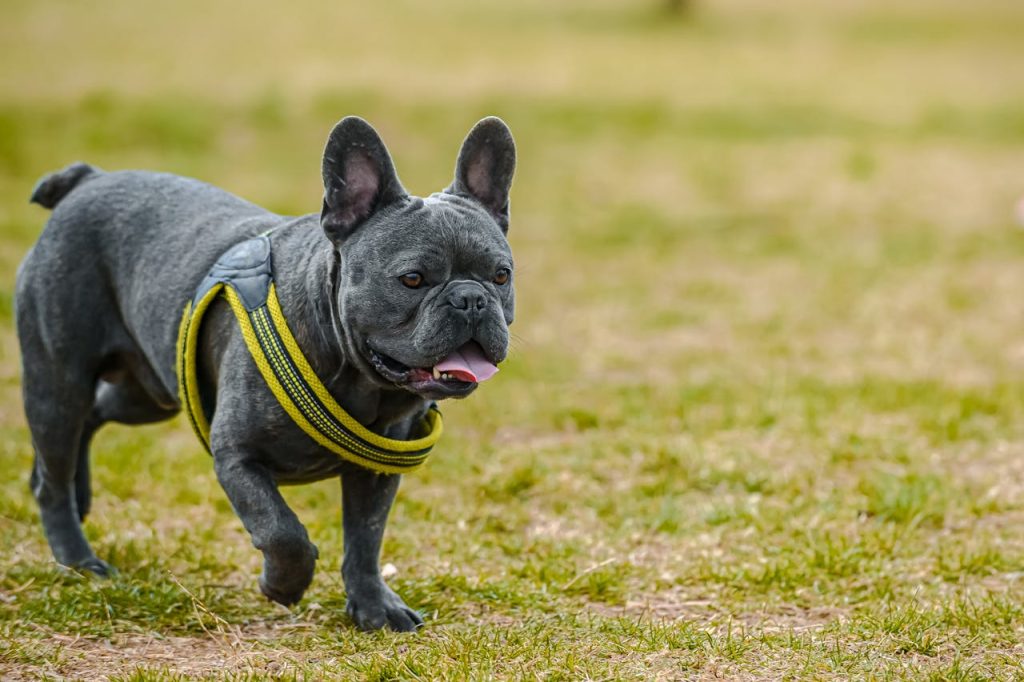
Frequently, dogs exhibit behaviors that seem bizarre to us, but serve a specific purpose in canine communication. When your dog kicks after pooping, it’s not just a quirk; it’s an essential aspect of scent communication.
By kicking, your dog disperses its scent, which is concentrated in the feces, into the surrounding environment.
This behavior is a form of olfactory signaling, conveying information about your dog’s identity, sex, reproductive status, and dominance status to other dogs.
As you observe your dog kicking after pooping, you’re witnessing a significant aspect of canine social behavior. Your dog is leaving a scent trail, which serves as a chemical signature that other dogs can detect and interpret.
This scent trail allows your dog to communicate with other dogs over long distances, establishing a network of olfactory cues that facilitate social interactions.
Social Learning From Others
How do dogs acquire the behavior of kicking after pooping, and what role does social learning play in this process?
You may be surprised to learn that social imitation plays a significant part in shaping canine behavior, including kicking after pooping.
Dogs are highly social animals that thrive on interaction with their pack, which includes their human family members. They observe and learn from others, often adopting behaviors through social imitation.
As a dog owner, you may unintentionally reinforce your dog’s kicking behavior after pooping. For instance, if you praise or reward your dog immediately after they kick, they may associate the behavior with positive reinforcement.
Similarly, if your dog observes other dogs kicking after pooping, they may adopt the behavior through social imitation. Canine behavior is shaped by a combination of genetic predisposition, environmental factors, and social learning.
Frequent Questions and Answers

You’ll notice that not all dog breeds exhibit kicking behavior after pooping, as breed differences play a significant role in kicking instincts. Some breeds, like hunting breeds, tend to kick more frequently due to their strong predatory instincts.
You can train your dog to stop kicking after pooping using specific training techniques and behavioral modification. By consistently rewarding calm behavior and redirecting their attention, you’ll help your dog associate pooping with relaxation, reducing the kicking habit.
You’re probably wondering if kicking after pooping is a sign of a medical issue. Generally, it’s not a cause for concern, but in some cases, it can be linked to underlying medical concerns affecting canine behavior.
You may notice some dogs kick more than once after pooping due to varying kicking frequencies, which can be influenced by a dominance display, where they assert their claim to the territory and warn others to stay away.
You may inadvertently teach your dog to kick after pooping by reacting to their behavior, making it a learned behavior. However, research suggests kicking is primarily a form of canine communication, not a human-influenced habit.
